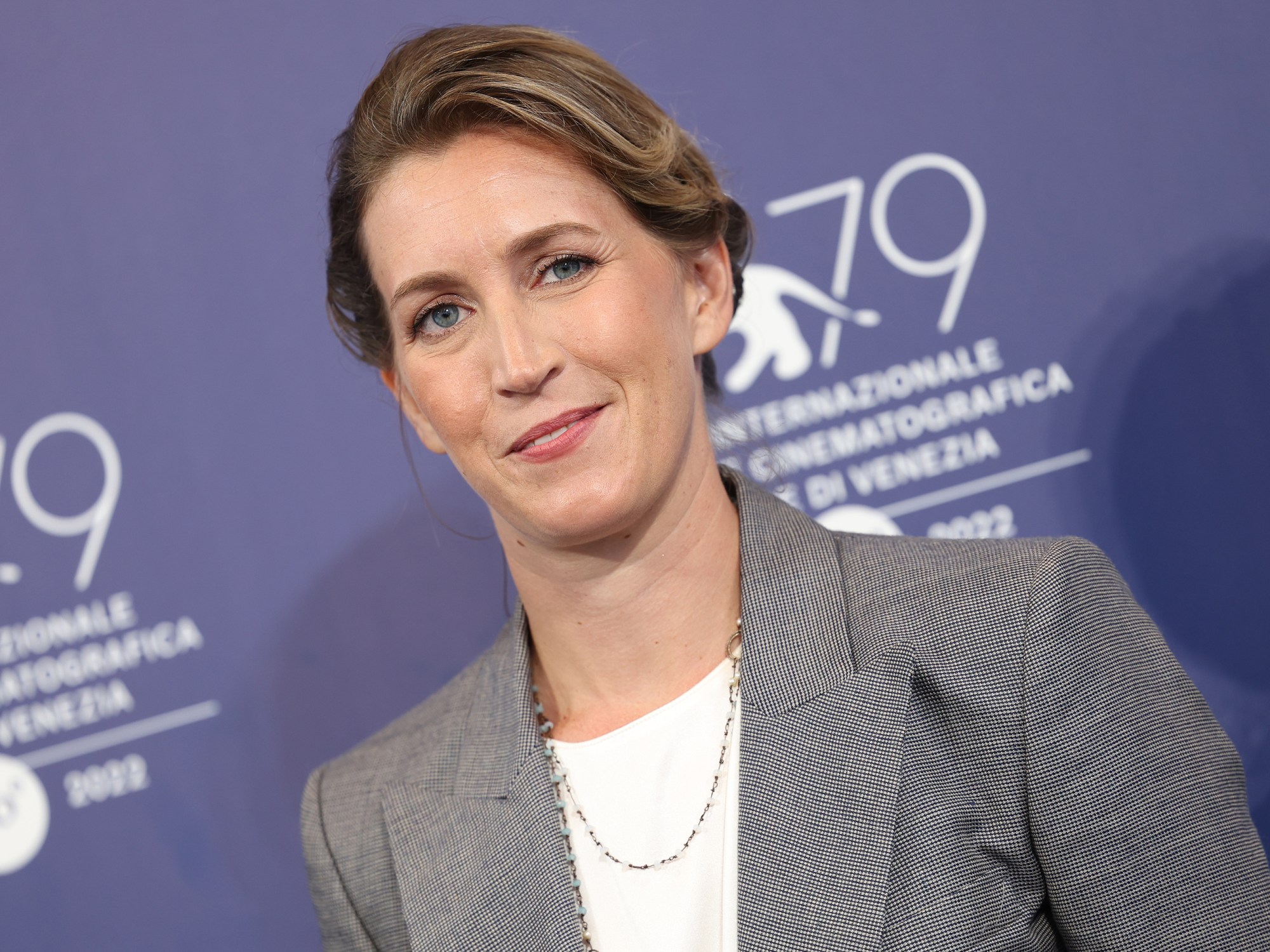
- Festivals
Venice 2022: Director Benedetta Argentieri’s “The Matchmaker” Profiles Prolific ISIS Recruiter
Radicalization is not exclusively the province of lonely, disaffected young men. Director Benedetta Argentieri’s challenging new documentary The Matchmaker, which just enjoyed its world premiere at the 2022 Venice Film Festival, provides compelling evidence of this, while also raising hard-to-answer questions about blurred lines, in the social media era, between mere personal self-destruction and a greater culpability when one promulgates and incites violence.
In 2014, French-born Tooba Bashir Gondal was a well-off, 20-year-old, British Pakistani student at Goldsmiths University, where she was working on a degree in English literature. After abandoning her studies and fleeing to Syria, Gondal would take up the name “Umm Muthanna Al-Britannia” online, becoming a prolific and energetic propagandist for ISIS in addition to a hardcore recruiter — likely influencing and helping traffic at least some of the many thousands of women who left European Union countries and actively chose to become “war brides” in Syria. Less than five years later Gondal would have several children from three different husbands (one killed in battle, one dead via suicide bomb), and find herself indefinitely detained in a camp after the fall of ISIS.
So how did this trajectory take shape? And does Gondal, despite her sweetly placid exterior, still harbor an extremist ideology? The Matchmaker wrestles with those questions.
Gondal grew up in what she deems a “medium observant” Muslim family in east London, the second oldest of four children of a successful businessman father and homemaker mother. It wasn’t until university that she donned a hijab for the first time, which she says gave her a feeling of renewal. Twitter provided an alternate news stream, and when jihadists reached out to her on the platform, she was receptive. In mid-2013, Gondal was tweeting about pitying poor atheist souls, but by the end of the next year she was justifying the slaughter of non-Muslim civilians and encouraging pilgrimage to Dawlah, or the Islamic state.
In the present day, though, the contours of Gondal’s accountability have all types of limits. She claims to have been “manipulated, brainwashed,” and says that she never recruited anyone to join ISIS. Onscreen, receipts are provided in the form of social media posts. (There was also a British government sting operation which found Gondal attempting to shepherd her younger sister and others to Syria — curiously unmentioned here.)
Pressed a bit, Gondal pivots. “If they blame me for their inspiration that’s their own opinion,” she says, when asked about recruitment. She denies photos she posted of her holding an AK-47 are actually her. Read some of her own tweets (including a couple celebrating the 2015 Paris terrorist attack in vulgar terms), she says things like, “Oh, that’s very extreme, I’m shocked,” or, “I have completely forgotten that stage of my life.”
If these moments — as well as Gondal’s inability to even articulate what drew her, at the time, to move beyond newfound religious piety and embrace Sharia law and jihad — are on a certain level infuriating, it also strikes an analytical viewer as essentially age-appropriate.
The depressing portrait that ultimately emerges in The Matchmaker is of a very intelligent but unhappy (“I’d tried clubbing, drugs, piercing,” Gondal says) and somewhat emotionally arrested young woman. Highly susceptible to the sway of social media, she seems to have opted to try on holy war not unlike another teenager or early twentysomething might reorient their personality around their new favorite band.
This isn’t meant to dismiss any embrace of faith on her part. But it does seem that Gondal (who repeatedly provides ample evidence of being an unreliable narrator) was less motivated in the blossoming of a more fully realized and exalted self than in purging herself of an unwanted past which she came to view as shameful and irredeemably tainted.
Argentieri has rich experience examining the intersection between women’s issues and uprisings across Afghanistan, Syria and Iraq, having helmed 2018’s I Am the Revolution and co-directed 2016’s Our War (another Venice Film Festival title), about three foreign fighters joining Kurdish forces to fight ISIS. She frames this film mostly as a single-subject piece, but does interview some Yazidi, a religious minority in Iraq brutally persecuted in large part specifically by ISIS women.
The Matchmaker touches on many of the same essential questions of this year’s hot-button Sundance Film Festival title Jihad Rehab: namely, even if de-radicalization is possible, where do such persons eventually go to live? What is their future if no nation-state will accept them, and attempt to help reintegrate them into society? And what is the moral logic behind blacklisting people charged with no actual crimes?
Yet Argentieri’s engrossing movie is also, more fundamentally, an active interrogation of the female experience in a cultural and religious war — of an “opt-in” choice to embrace an ideology which inarguably strips them of agency.
“I’m very sorry for my online behavior,” says Gondal at one point near the end of The Matchmaker. What’s most striking about her statement is that, while lacking, it doesn’t come across as insincere. Sitting with these contradictions isn’t easy. But as many western countries struggle or sometimes outright refuse to repatriate former jihadis and some of those who served as their online mouthpieces, consideration must be given toward both consequences and compassion. It’s important if the global community is to chart a pluralistic path back toward cooperation and lasting peace.

